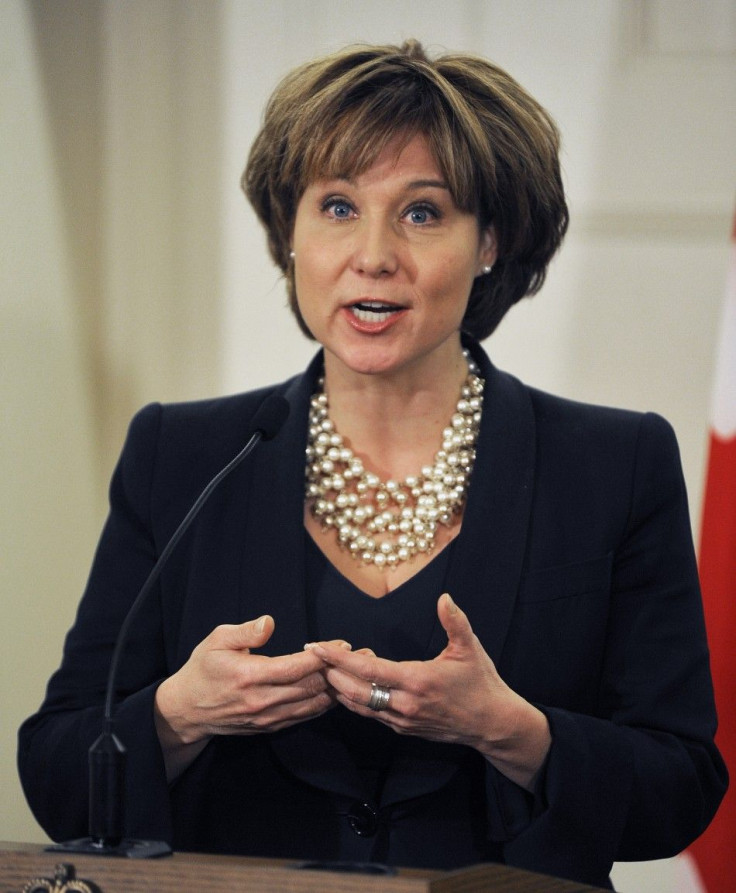Provinces bristle at federal health deal

The provinces unanimously believe the federal government's unilateral decision to impose a new formula for how it will help fund the public healthcare system was both unprecedented and unacceptable, British Columbia Premier Christy Clark said Monday.
Clark made the remarks after chairing a meeting of the provincial premiers, where the main topic was Finance Minister Jim Flaherty's announcement last month of how much federal health spending would go up for the next decade and beyond.
She answered, No, when asked if the premiers had no choice but to accept the federal government's arrangement.
I think there was a strong sense among premiers in the room that there is an opportunity for us to engage in dialogue, she said. You know, the thing about healthcare in Canada is it's not there to serve the federal government or the provincial government or politicians. It's there to service citizens.
Under the new federal formula, Ottawa will continue to boost its health transfers to the provinces, which run the free public health system, by 6 percent a year through 2016-17, and then raise it by inflation plus the real growth rate of the economy - an amount expected to be less than 6 percent.
Provinces complained that would mean cuts to health services because of the rising cost of medicine and an increase in the number of seniors, whose health needs are greater.
The expected bulge in healthcare spending as baby boomers age is a problem facing not just Canada but the United States and most developed countries, whether their health systems are public or private or a mix.
Conservative Prime Minister Stephen Harper said the certainty in funding for the next decade would enable the provinces to concentrate on innovations to contain costs, but rejected the possibility of financing a supplementary innovation fund to speed that up.
I'm not looking to spend more money (than what Flaherty promised), he said in a CBC interview. I think we've been clear what we think is within the capacity of the federal government over a long period of time.
In Victoria, Ontario Premier Dalton McGuinty told reporters that Ottawa needed to be an active participant on healthcare: It's unacceptable for the prime minister to say that he is effectively going to passively preside over the evolution of healthcare in Canada. We need to be together on this.
SHOULD SOME PROVINCES GET MORE?
Beneath the general complaint about Ottawa, however, lay a division of provincial opinion on whether provinces with proportionately more seniors should get proportionately more money.
British Columbia, a favorite retirement spot for Canadians because of its temperate climate, has more elderly and wants more money in compensation, whereas neighboring Alberta says funding should be on a per-capita basis.
I believe that every Canadian is entitled to the same amount of money through the Canadian health transfer as every other Canadian to ensure, if we remember what the object is, that all Canadians are able to get access to the same services based on the same level of taxation, Alberta Premier Alison Redford said.
Arguing for a return to a guaranteed 6 percent increase, Quebec Premier Jean Charest said that was similar to what other industrialized countries were doing.
Flaherty told CTV television, however that the provinces on average were not planning to boost their own health spending by that much.
The office of the parliamentary budget officer said last week the federal government's decision had put Ottawa's books on a sound financial footing but that the provinces' fiscal path was unsustainable.
© Copyright Thomson Reuters 2024. All rights reserved.





















